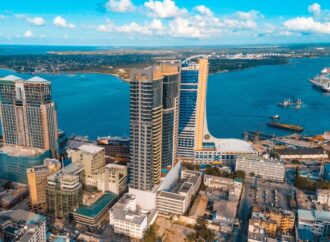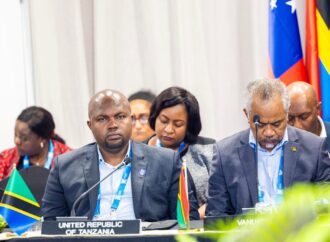Tanzania Shores Up Foreign Exchange Reserves as Economic Outlook Brightens
A recent statement by the Bank of Tanzania (BoT) brought a wave of optimism, highlighting the strengthening of the country’s foreign exchange reserves. Surpassing $5 billion at the end of June 2024, these reserves mark a significant improvement and provide a buffer exceeding four months of projected imports. This robust position not only improves Tanzania’s external financial health but also suggests a well-crafted strategy to weather the storms of global economic uncertainty.
Balancing Caution with Optimism
The Monetary Policy Committee’s (MPC) decision to hold the Central Bank Rate at 6% reflects a prudent yet hopeful approach. Inflation expectations remain comfortably below the 5% target, supported by a generally positive global outlook. The receding tide of inflation in many countries, coupled with easing financial conditions worldwide, has created a favorable backdrop for Tanzania’s economic prospects.
Reserves on the Rise, a Shield for Economic Resilience
The upward trajectory of Tanzania’s foreign exchange reserves stands as a cornerstone of the country’s improving economic resilience. These reserves act as a financial shield, allowing Tanzania to manage currency fluctuations and ensure a smooth flow of essential imports without resorting to drastic measures. The BoT’s proactive efforts to build and strengthen these reserves demonstrate a clear commitment to fostering economic stability and promoting long-term growth.
Sources of Strength
Several factors are fueling the recent improvement in Tanzania’s foreign exchange reserves. Increased inflows from key sectors like tourism, gold exports, and traditional cash crops have played a vital role. The tourism industry, in particular, is experiencing a resurgence, with visitors drawn to Tanzania’s rich cultural heritage and breathtaking natural beauty. Similarly, elevated gold prices, a consequence of global economic anxieties, have encouraged gold exports as investors seek safe-haven assets.
The BoT has also signaled its intention to further solidify reserves by diversifying its portfolio, including the purchase of gold from domestic markets. This strategy not only strengthens the reserve position but also injects support into local mining industries, creating a ripple effect of economic benefits.
Policy Implications and a Bright Future
The improving foreign exchange reserves hold significant weight for Tanzania’s economic policy. They provide the BoT with greater flexibility to manage monetary policy instruments and stabilize the Tanzanian shilling. The anticipated rise in foreign inflows from mining, tourism, and traditional exports further strengthens this position. Additionally, measures aimed at curbing transaction dollarization are expected to indirectly bolster reserves by reducing the demand for foreign currency.
Looking ahead, the MPC projects sustained economic growth, fueled by favorable weather patterns for agriculture, improved infrastructure, and the implementation of effective policy reforms. The economic outlook remains positive, with growth projections for the first and second quarters of 2024 at around 5 to 5.4 percent. This optimistic forecast is underpinned by stable inflation, robust fiscal performance, and a healthy banking sector.




